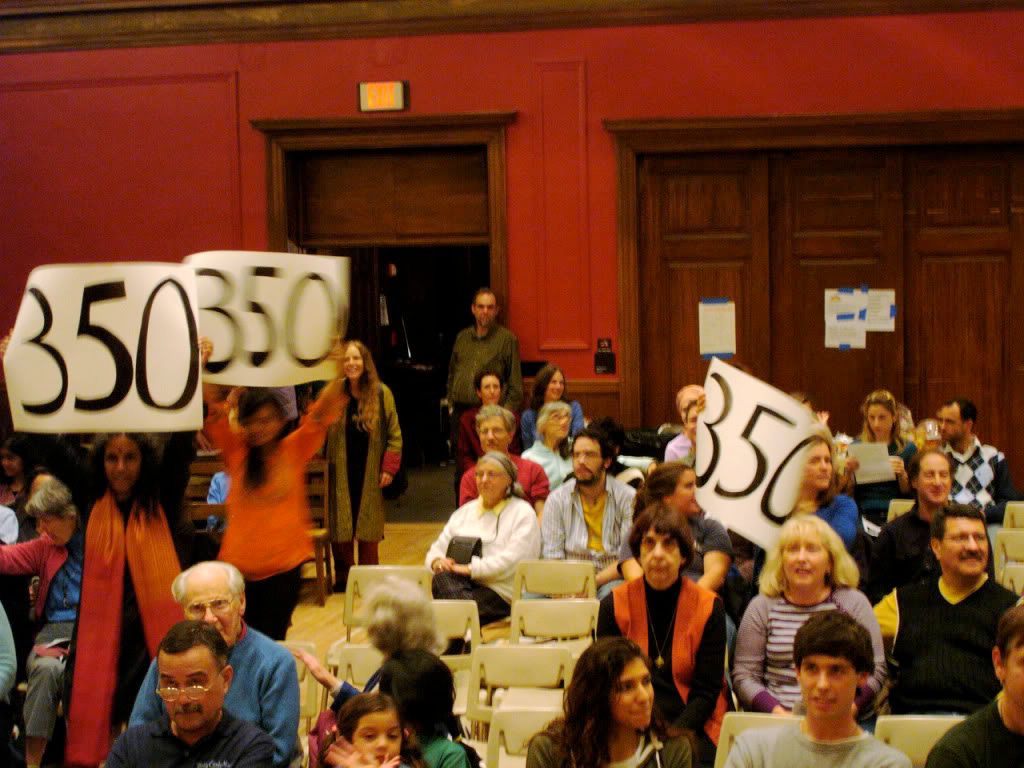Doesn’t Get Much Better…
…than Johnny Hodges and Strayhorn’s beautiful composition “Isfahan.”
I have recently been watching a lot of concert videos while transplanting seedlings in my office. Last night was a lot of Duke Ellington. Not a bad way to spend a couple of hours: playing in the dirt while watching Duke out of the corner of my eye.
Speaking of which, just for giggles, here’s Duke on “What’s My Line?”
April 22 Action environment Jazz music: benefit concert genius violin
by Warren
leave a comment
Meta
SiteMeter
Brighter Planet
Mimi Rabson Quartet: Violins Against Climate Change, April 22, 2011
Mimi Rabson appeared with her group, including Nick Grondin on guitar, Dave Clark on bass, and Ricardo Monzon on drums. They played an absolutely terrific set. Listen and enjoy:
“The Next Vehicle” (The beginning of this piece was cut off — sorry!)
“Billie’s Bounce” (Nick Grondin arrangement)
“Heal I-Self”
“Marking Time”
“Because I Can”
“Ska Circus”
“Archnophobia” — Composition: Dave Clark
“Why’d Ya Do It?”
===========================================
This music was performed to benefit 350.org. Please consider donating some money to them if you have enjoyed listening. Just click on the photo.
humor Jazz music Personal Warren's music
by Warren
leave a comment
Meta
SiteMeter
Brighter Planet
Jazz music Personal photoblogging: genius
by Warren
5 comments
Meta
SiteMeter
Brighter Planet
More Jazz Photoblogging: Sam Rivers Trio, Boston, 1976
I digitized a lot of photos over the past year, but I haven’t gotten around to putting them online. Here are some pictures from a wonderful performance by Sam Rivers’ Trio at the Jazz Workshop. Most of these were woefully underexposed; some parts of the images were restored digitally.
While I don’t feel these are my best work they nonetheless capture some of the ambience of the gig that night. Not bad for a high-school student.
Sam Rivers is a truly amazing musician who is still going strong. Here is his website.
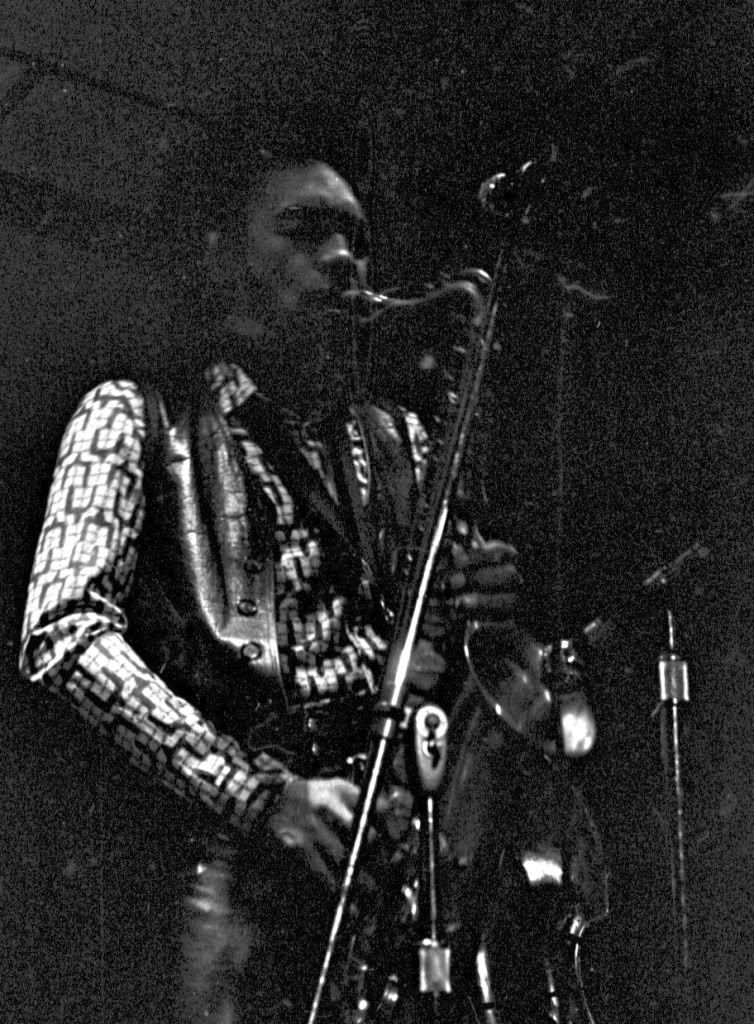
Sam Rivers
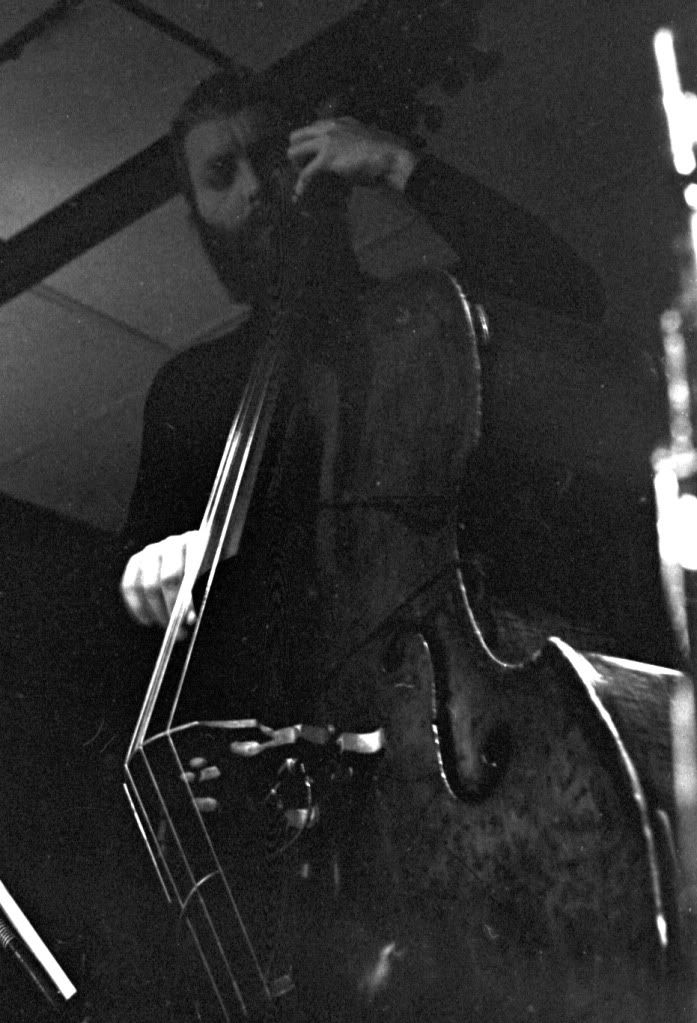
Dave Holland
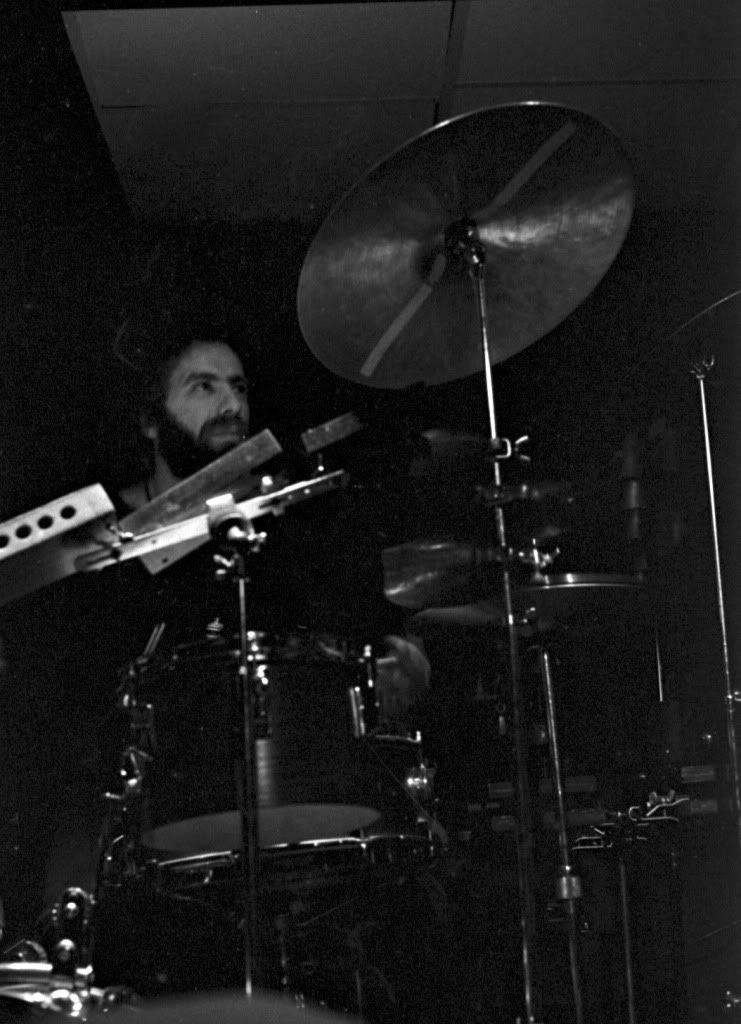
Barry Altschul
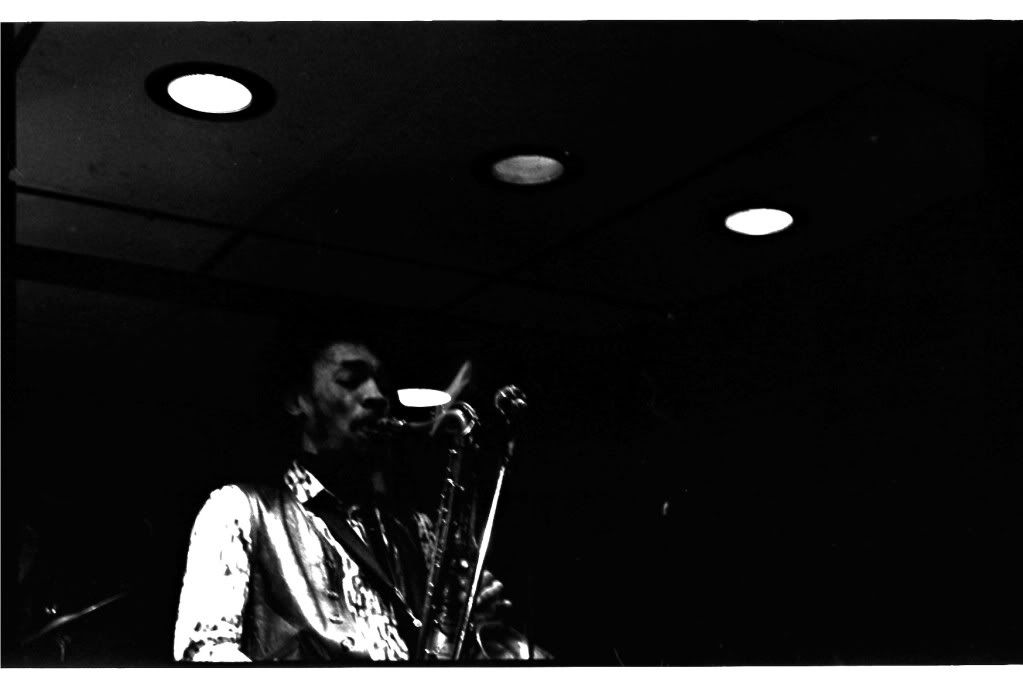
Sam Rivers
Louis Armstrong’s Sunlit Art
A few weeks ago I finished reading “Pops,” Terry Teachout’s beautiful biography of Louis Armstrong. The book was sitting on a chair in my living room, and I went to put it away. It opened at my touch to the page describing Louis’ recording of “Star Dust.” I read these words:
“Armstrong’s vocal is a paraphrase of Carmichael’s tune and Parish’s lyric, whose words he reshapes with a desentimentalizing freedom that delighted the composer: SometimesIwonderwhyIspendsuchlonelynight (oh, baby, lonely nightnnnmmmmm) / Dreaming of a song (melody, memory) / And I am once again with you. Even for him it was a daringly imaginative transformation, much more so than the instrumental portion of the record, in which he mostly stays within earshot of the tune. The fact that he takes the song at a danceable lope suggests that he was regularly tossing off similar musical miracles on the bandstand in the winter of 1931.”
So I thought, “Well. That sounds like it’s worth a listen or two.”
It is:
India Jazz music: 78 rpm discs early jazz
by Warren
2 comments
Meta
SiteMeter
Brighter Planet
78 rpm Records of Indian Music: The Peerless Orchestra
Here are four sides on the Zonophone label from the Peerless Orchestra — a name that has apparently had a significant franchise over the years. As in the case of the Manhattan Jazz Band, these recordings were probably made in England and released in India for the benefit of the British expats.
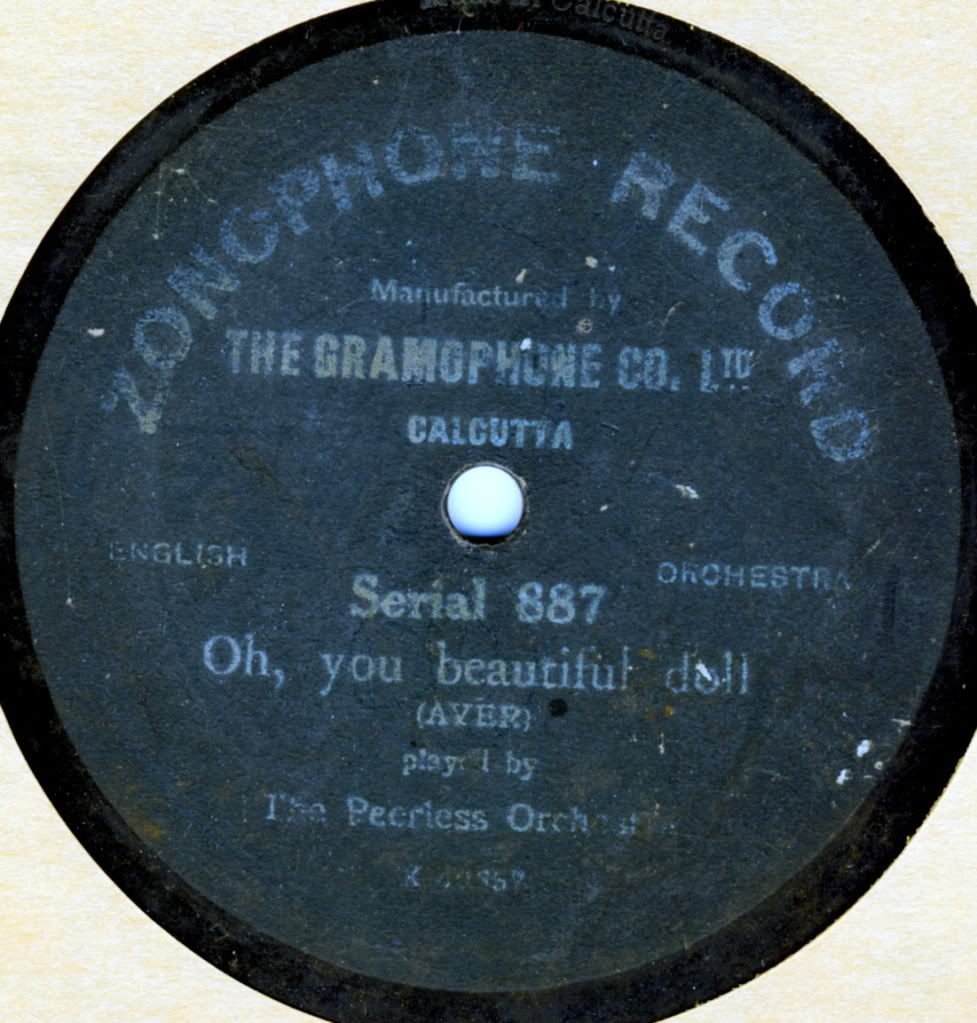
It ain’t Indian music…but it’s certainly evocative of a certain sort of nostalgia, and I will eventually get my entire library of 78s uploaded, so you should get used to some of this stuff now. There’s lots more where that came from.
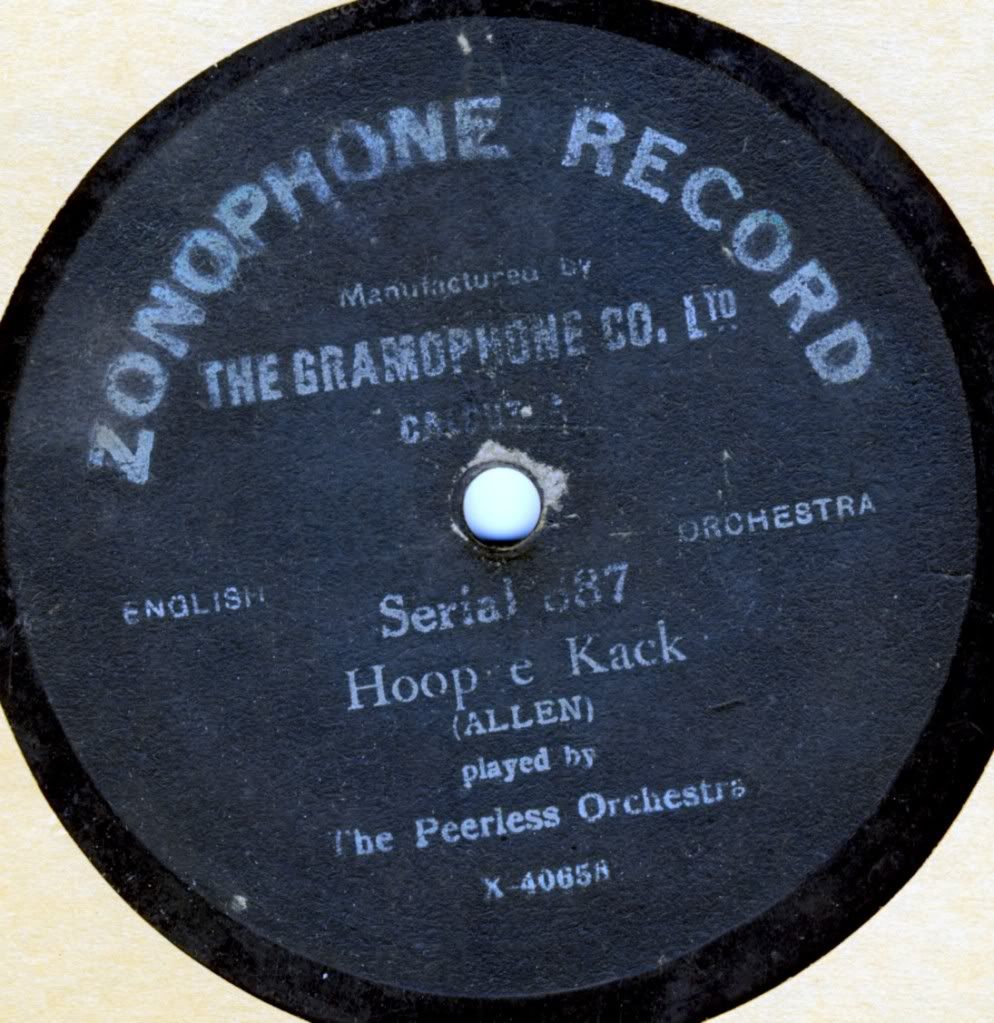
Enjoy.
Oh, You Beautiful Doll
Hoopoe Kack (WTF? SRSLY?)
Miami (A Southern Idyll)
The Horse Trot
humor India Indian music Jazz music: 78 rpm discs early jazz novelty music
by Warren
3 comments
Meta
SiteMeter
Brighter Planet
78 rpm Records of Indian Music: The Manhattan Jazz Band
Here’s a change of pace: a disc from the “Manhattan Jazz Band,” released on the Calcutta-based Zonophone label. My best guess is this was from some point in the 1920s or 30s; the music is what was called jazz at the time — by people who didn’t know what jazz was.
In the late 1990s I picked up a great many 78s at a small store in Bombay’s Chor Bazaar. Among them were a few of these recordings of “English Music.” Apparently these were mostly recorded in England and released in India, for the enjoyment of the Brits. I had a brief fantasy that these were Indian musicians hired to play this repertoire, which would have been ethnomusicologically fascinating. Turns out that’s not what happened. Ah, well.
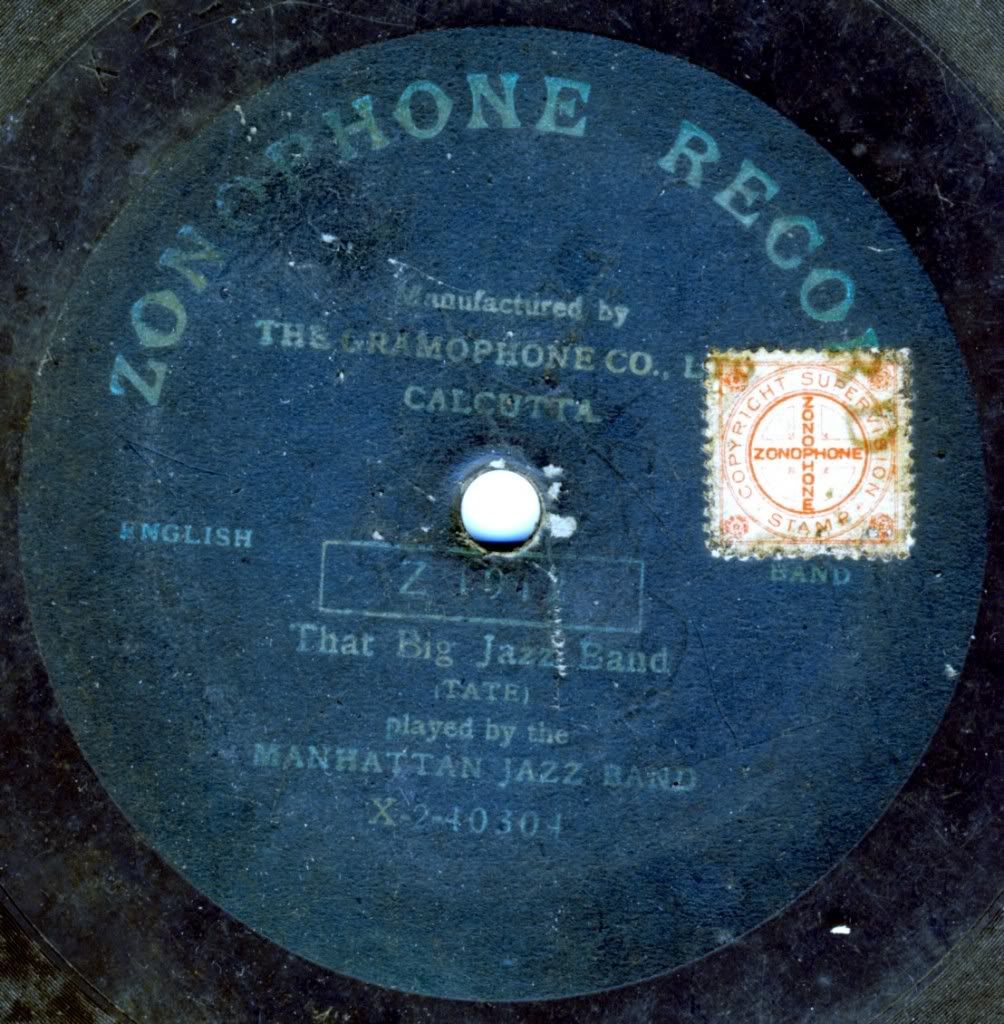
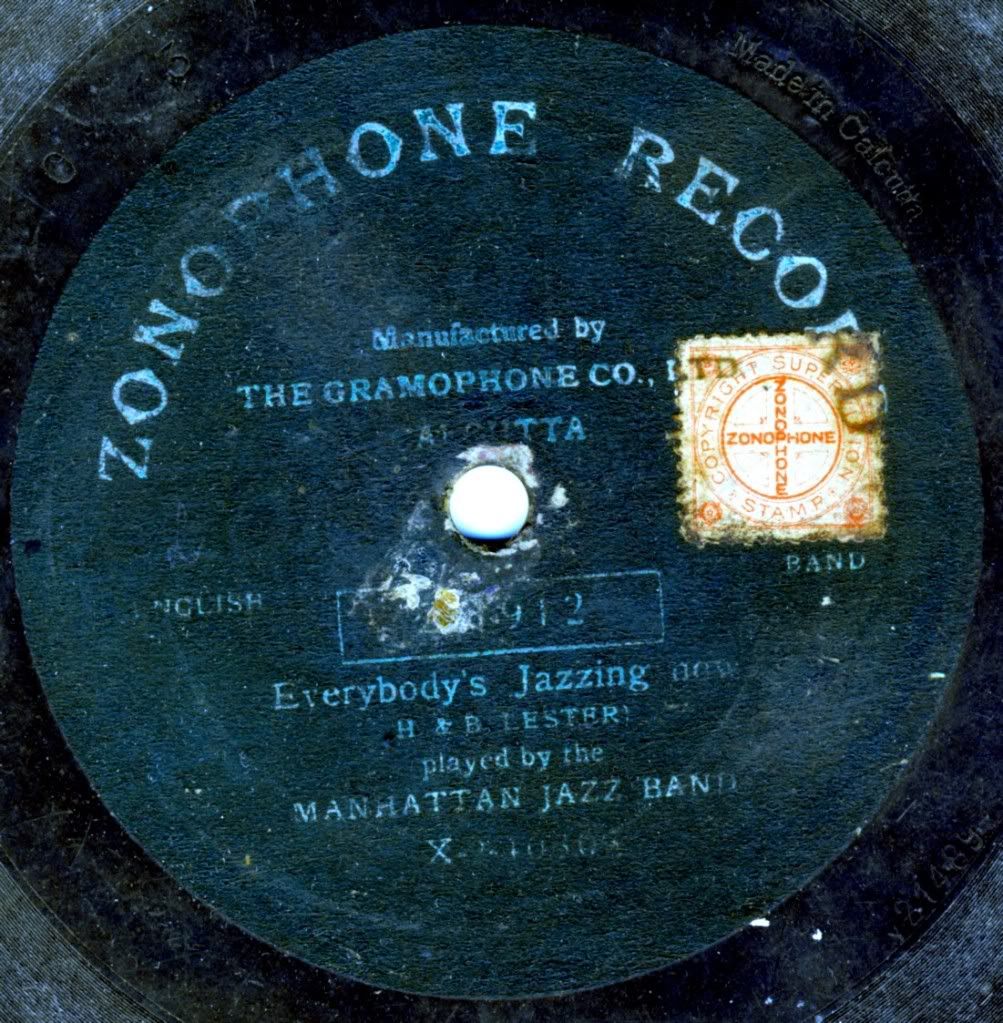
The amount of crud on the surface of the disc is beyond imagination.
Enjoy “Everybody’s Jazzing Now”:
And here’s “That Big Jazz Band”:
Jazz music vocalists: genius Great American Songbook
by Warren
leave a comment
Meta
SiteMeter
Brighter Planet
Hoagy Carmichael
The composer of countless wonderful songs was also a charmingly relaxed performer of his own music. In the second half of his career he was often given cameo roles in movies, performing one or another of his contributions to the Great American Songbook.
—————————————————
Lazy Bones
==========================================
Hoagland Howard “Hoagy” Carmichael (November 22, 1899 – December 27, 1981) was an American composer, pianist, singer, actor, and bandleader. He is best known for writing “Stardust”, “Georgia On My Mind”, “The Nearness of You”, and “Heart and Soul”, four of the most-recorded American songs of all time.[1]
Alec Wilder, in his study of the American popular song, concluded that Hoagy Carmichael was the “most talented, inventive, sophisticated and jazz-oriented” of the hundreds of writers composing pop songs in the first half of the 20th century.
WIKI
==========================================
Am I Blue
==========================================
He was born Hoagland Howard Carmichael in Bloomington, Indiana on November 22, 1899. His father was an electrician and his mother played the piano for dances and silent films. Although his ambition was to become a lawyer, Carmichael showed an early interest in music. When his family moved to Indianapolis in 1916, he took lessons from an African-American pianist Reginald DuValle. He attended Indiana University, and, while there, he organized his own jazz band. When the great jazz cornetist Bix Beiderbecke, then at the very beginning of his brief career, paid a visit to Indiana University in the spring of 1924, he and Carmichael quickly became friends, and it was for Beiderbecke that Carmichael wrote his first piece. Not long afterward, Beiderbecke and the Wolverines recorded it under the title “Riverboat Shuffle”.
Carmichael went on to the Indiana University Law School, and continued to perform and write music while there. He graduated in 1926, and began to practice law in West Palm Beach, Florida. However, the discovery that another of his early tunes “Washboard Blues” had been recorded prompted him to abandon law for music. He briefly returned to Indiana, and then in 1929 he arrived in New York. He resumed his contact with Beiderbecke and was introduced with some of the most talented young musicians of the day, including Louis Armstrong, the Dorsey Brothers, Benny Goodman, and Jack Teagarden. Another important lifelong friendship during this time was also established with lyricist Johnny Mercer. Link
==========================================
Playing “Stardust” — next up is Hoagy’s vocal version from 1942:
Hoagy’s whistling is great.
==========================================
Here’s a discography of some of Hoagy’s own recordings.
==========================================
Lazy River, from 1930.
==========================================
Old Buttermilk Sky. In last year’s “Singing For The Planet” concert, Dominique Eade performed a beautiful version of this song.
==========================================
“Old Rockin’ Chair,” a song originally written for Mildred Bailey. Recorded in 1956 with the Pacific Jazz All Stars.
==========================================
Carmichael was a Republican supporter and FDR hater, voting for Wendell Wilkie for president in 1940, and was often aghast at the left-leaning political views of his friends in Hollywood.
WIKI
Nobody’s perfect.

